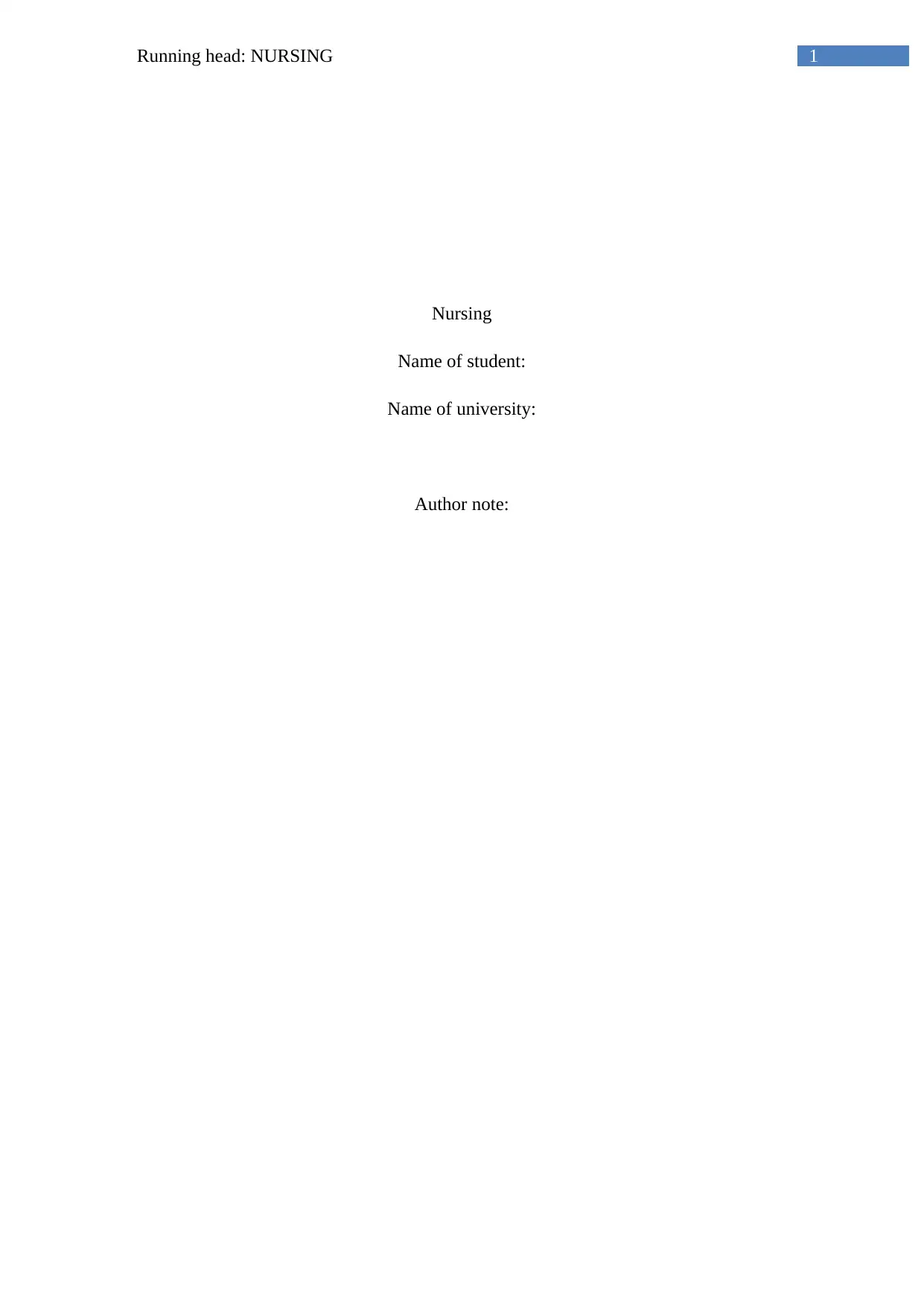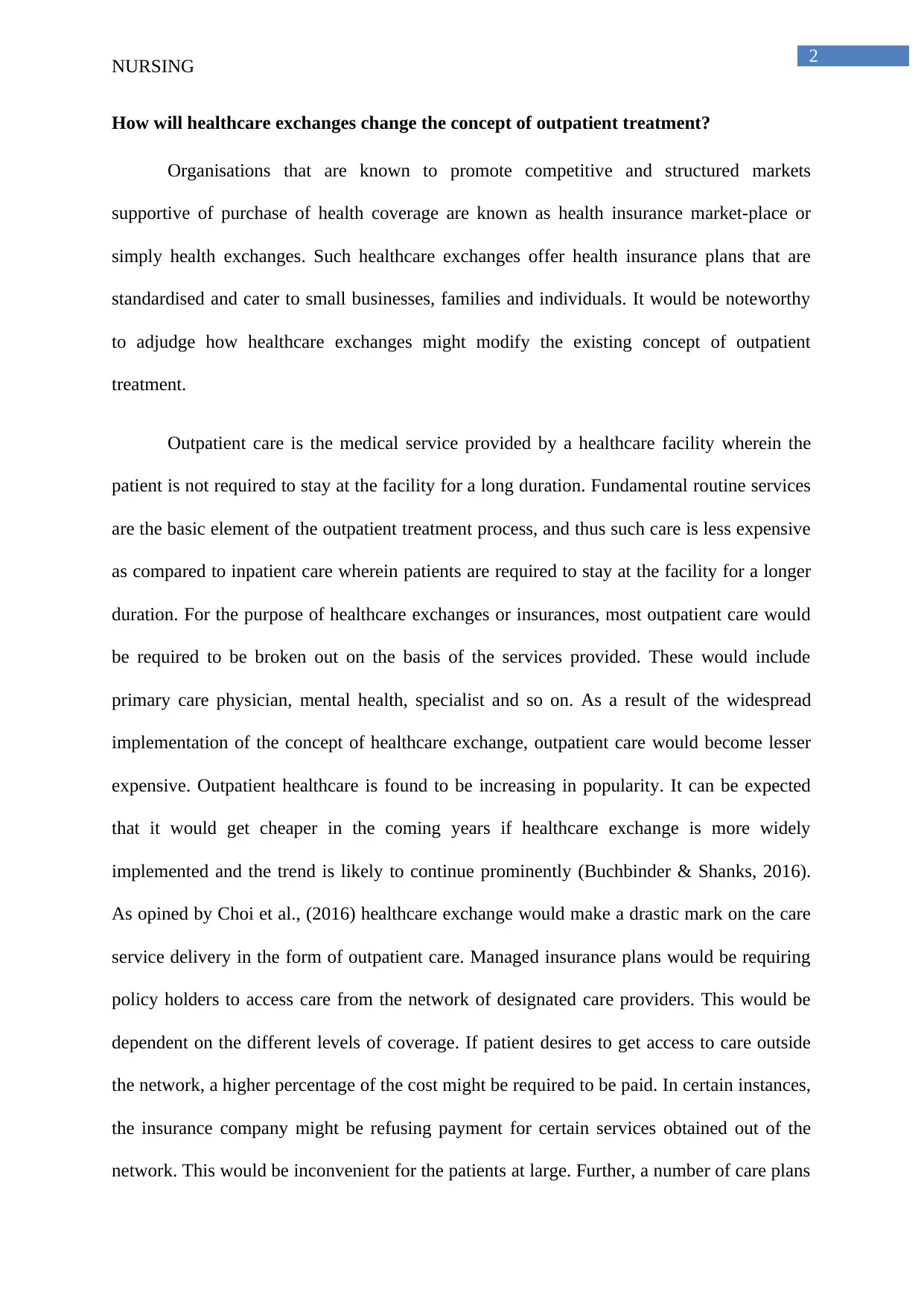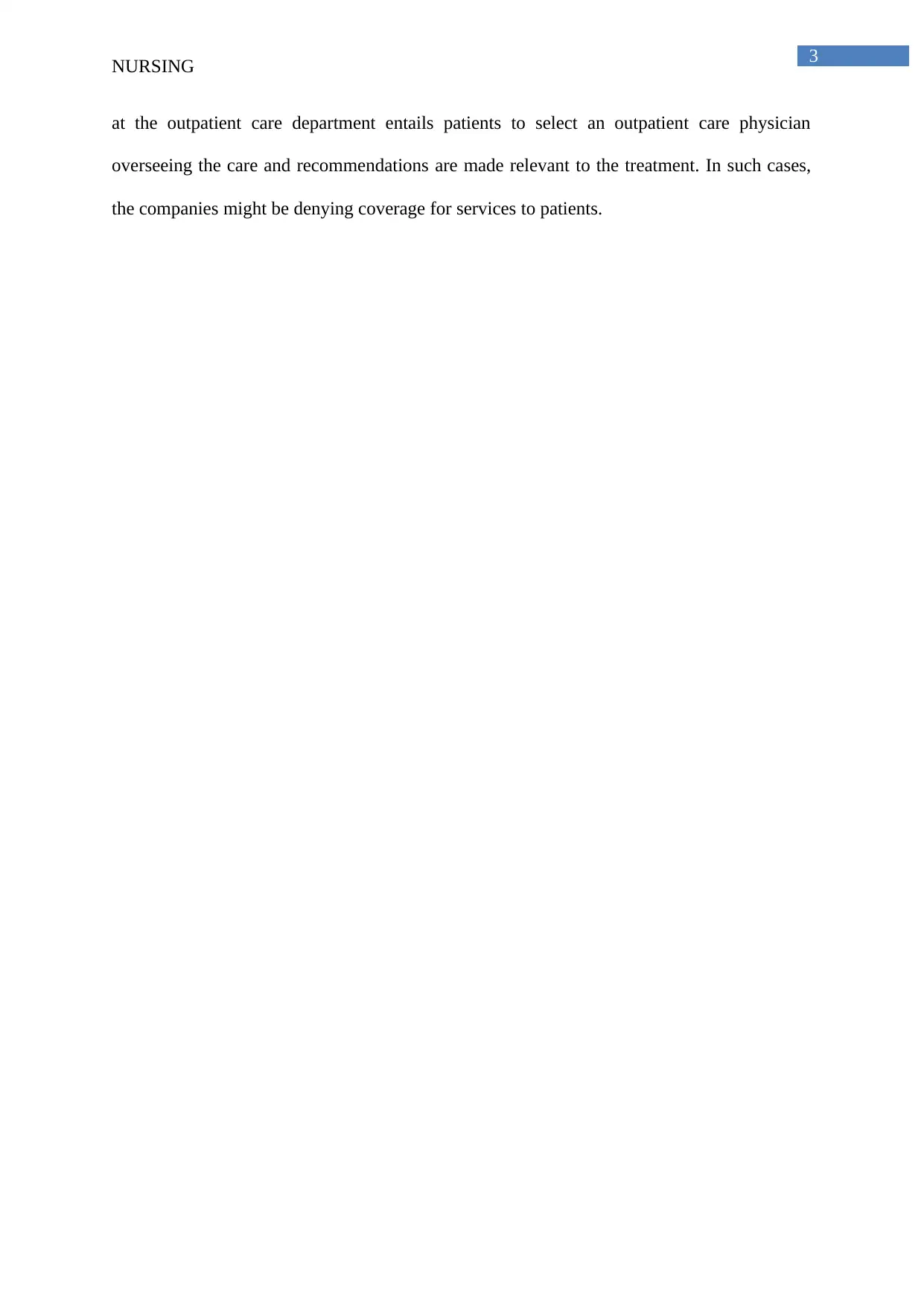Outpatient Treatment Evolution: The Role of Healthcare Exchanges
VerifiedAdded on 2023/06/15
|4
|514
|405
Essay
AI Summary
This essay explores the transformative impact of healthcare exchanges on outpatient treatment. Healthcare exchanges, designed to promote competitive health coverage markets, offer standardized insurance plans for individuals, families, and small businesses. The shift towards healthcare exchanges is expected to reduce the cost of outpatient care by requiring a breakdown of services, including primary care, mental health, and specialist visits. Managed insurance plans will likely require policyholders to access care within designated networks, potentially increasing out-of-pocket costs for out-of-network services or even denying coverage. Additionally, some care plans may necessitate selecting an outpatient care physician to oversee treatment, which could also lead to coverage denials in certain cases. The increasing popularity and potential cost reduction of outpatient healthcare, driven by the widespread implementation of healthcare exchanges, is a significant trend, although it may introduce complexities related to network access and coverage.
1 out of 4











![[object Object]](/_next/static/media/star-bottom.7253800d.svg)